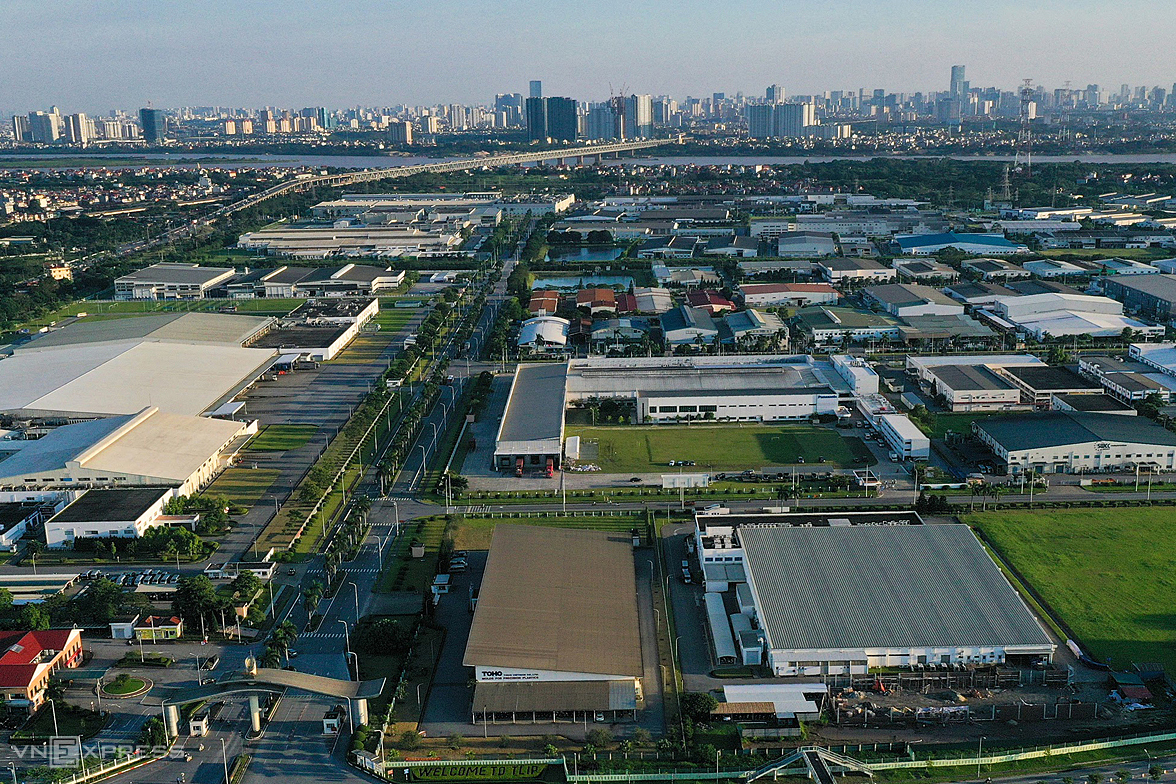Foreign investors poured capital into 54 provinces and cities in the first six months of this year, according to a report by the Foreign Investment Agency (FIA) under the Ministry of Finance. The top six localities alone attracted nearly 65% of new projects and 62.4% of the nation's total investment capital.
Hanoi led the list, attracting 3.66 billion USD in registered capital, accounting for 17% of the country's total and 2.8 times higher than the same period last year.
Bac Ninh secured the second position with nearly 3.15 billion USD, a 7.1% year-on-year increase. Ho Chi Minh City followed in third place, with over 2.7 billion USD in registered investment capital, a 2.2-fold increase.
The FIA attributed the leading localities' success in FDI attraction to advantages such as robust infrastructure, a stable workforce, administrative reform efforts, and proactive investment promotion.
 |
Nam Thang Long Industrial Park, Hanoi. Photo: Giang Huy |
Nam Thang Long Industrial Park, Hanoi. Photo: Giang Huy
Despite global economic fluctuations in the first half of the year, FDI inflows into Vietnam continued to show positive growth. Total registered, adjusted, contributed, and share-purchased capital from foreign investors reached over 21.5 billion USD, a nearly 33% increase compared to the same period last year. This reflects growing investor confidence in Vietnam's investment environment, according to the FIA.
"Investors continue to choose Vietnam as a new destination and are willing to expand existing projects," the FIA stated.
Singapore, South Korea, China, Japan, and Malaysia remained the top five investing countries, accounting for nearly 63% of new investment projects and 65% of the total capital.
The processing and manufacturing industry attracted nearly 12 billion USD, accounting for 55.6% of the total registered investment capital. This was followed by real estate (5.17 billion USD), science and technology (1.18 billion USD), and water supply and waste treatment (903 million USD).
However, authorities also acknowledged geopolitical and policy risks, such as US countervailing duties, which could create apprehension among international investors. This is one reason why some foreign investors are more cautious in their disbursements, especially for large-scale, long-term projects.
Phuong Dung












